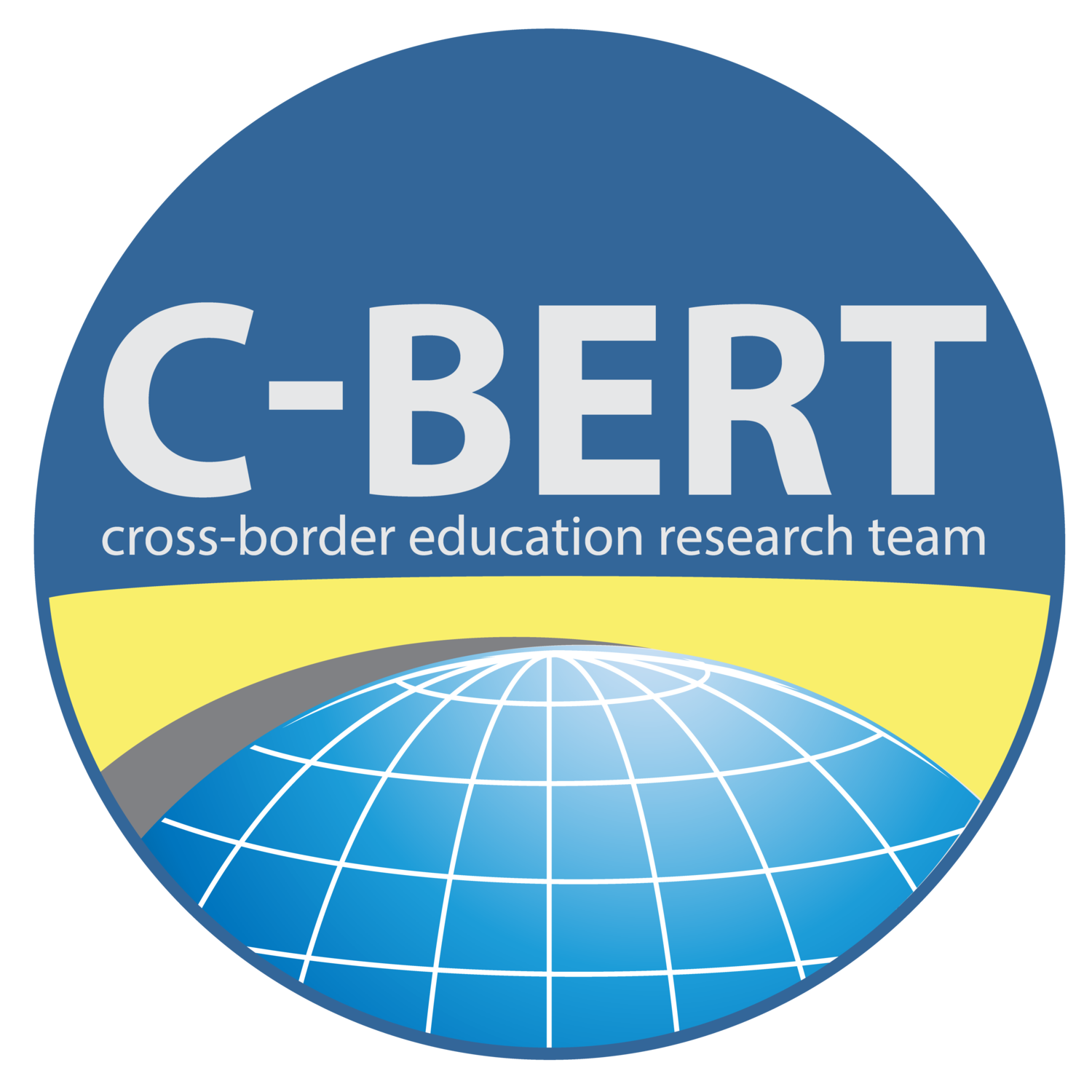About Us
Overview
Cross-border education, also known as transnational education or offshore education, has rapidly emerged as a legitimate form of educational delivery as well as an important subfield of international education scholarship. As the number of international branch campuses, twinning arrangements, validation models, and educational franchises grow, the traditional notion of higher education being domestically financed, governed, and located is beginning to evolve. In fact, some governments, often in Asia and the Middle East, have turned to cross-border education as a means for growing their educational capacity. Yet, such activities tend to exist separate from traditional regulatory models, and international data collection efforts have largely ignored this phenomenon. As such, early research and writing on the topic was often limited to personal reflections and limited case studies.
-
The Cross-Border Education Research Team (C-BERT) was created in 2010 by Kevin Kinser and Jason Lane out of the need for scholarly and unbiased data and research about the exporting/importing of higher education. Originally housed at the State University of New York at Albany and now co-located with The Pennsylvania State University, C-BERT collects quantitative and qualitative data on the topic and studies this phenomenon from organizational, sociological, economic, and political perspectives. As distinct from strictly virtual or online education, C-BERT concentrates on instances of physical cross-border teaching and research activities. These broad interests inform more specific inquiries into regulation, accountability, quality assurance, institutional legitimacy, patterns of growth, and institutional failures, among other topics. C-BERT does not promote or represent any institutions, sectors, or national systems engaged in cross-border higher education. Rather, the mission is to advance understanding of these issues through the discovery, analysis, and dissemination of knowledge. In turn, this research aims to inform institutional development as well as public policy and discussion.
-
In order to systematically advance knowledge about activities related to institutions crossing borders, C-BERT created the first open access listing and database of international branch campuses (IBCs). This database provides current information on all known branch campuses, including those that have closed. It includes information on location, founding dates, funding, governance, enrollments, and programmatic offerings. Drawing on the data base and more than 50 on-site visits to IBCs, rich and grounded descriptions of IBCs in different countries and regions have been produced. In sum, C-BERT data have provided the foundation for 2 books and nearly 50 journal articles, book chapters and other policy reports and papers in the last five years.
The utility of the data compiled by C-BERT has been shown in several ways. C-BERT’s data has resulted in numerous citations in the popular and trade press, and the C-BERT web site has become known by reporters as the most comprehensive set of information about international branch campuses. Such detailed and grounded descriptions, particularly with respect to new and dynamic developments in a sector such as higher education, have the great value of uncovering issues and raising questions, and C-BERT’s inquiries have provided guidance for institutional leaders while also being used by other scholars to examine and develop better understandings of government policies/policy approaches respecting IBCs, and cross-border higher education more generally, with respect to regulation and quality assurance.
-
Taken together, C-BERT’s research has informed campus leaders, higher education officials, and government officials with policy portfolios outside of education, higher education or research. C-BERT has played a central, crucial role in framing questions for, developing data to inform, and undertaking the study of an important development in international higher education.
C-BERT has co-authored with the Observatory for Borderless Higher Education (OBHE) two reports on IBCS: International Branch Campuses: Trends and Developments, 2016 and International Branch Campuses: Success Factors of Mature IBCs, 2017.
-
The C-BERT team is comprised of visiting scholars, research associates, and doctoral and postdoctoral researchers with varying geographic expertise and linguistic familiarity.
Meet the Team
-

Kevin Kinser, Ed.D.
C-BERT CO-FOUNDER
-

Jason E. Lane, Ph.D.
C-BERT CO-FOUNDER
-

Jill Borgos, Ph.D.
SENIOR RESEARCH ASSOCIATE
Previous Affiliated Researchers
Sarah T. Zipf, Ph.D.
Christine Farrugia, Ph.D.
Khem Sedhai
Ying Wang
Li Zhang, Ph.D.
Kathryn S. Schiller, Ph.D.
Mitch Leventhal, Ph.D.
Yung-chi Hou (Angela)
Sheng-Ju Chan
Yunyu Shi
Chanjuan Peng
Zhangjing Zhao
Fuchun Zhao
Huaming Fang
Yan Zhang
Tom Enderlein, Ph.D.
Odilbek Kattaev
Dan Knox. Ph.D.
Taya Louise Owens, Ph.D.
Kaoushikk Mukherjee, Ph.D.
Jessica Schueller, Ph.D.
Melissa Burns
Semonti Dey
